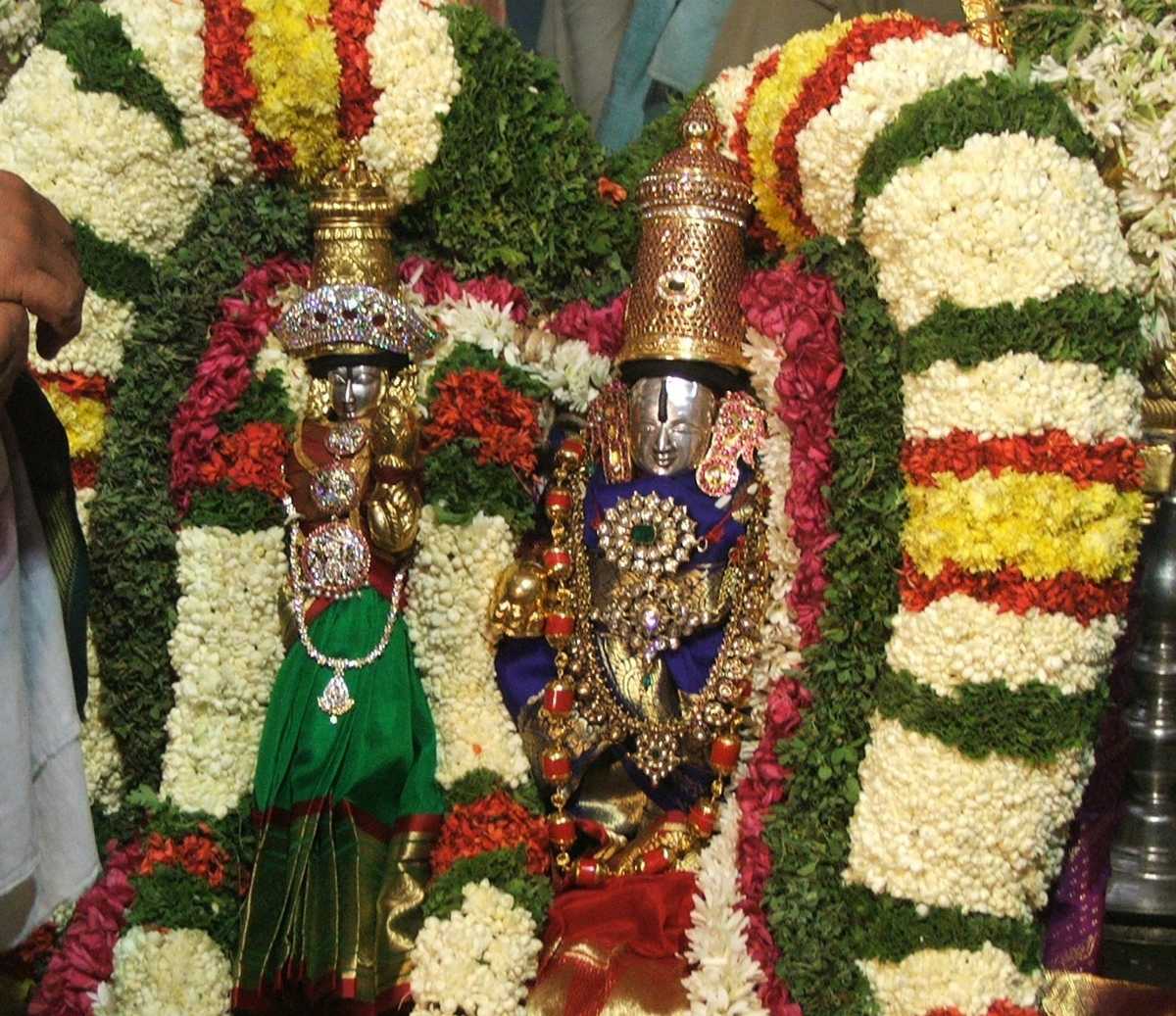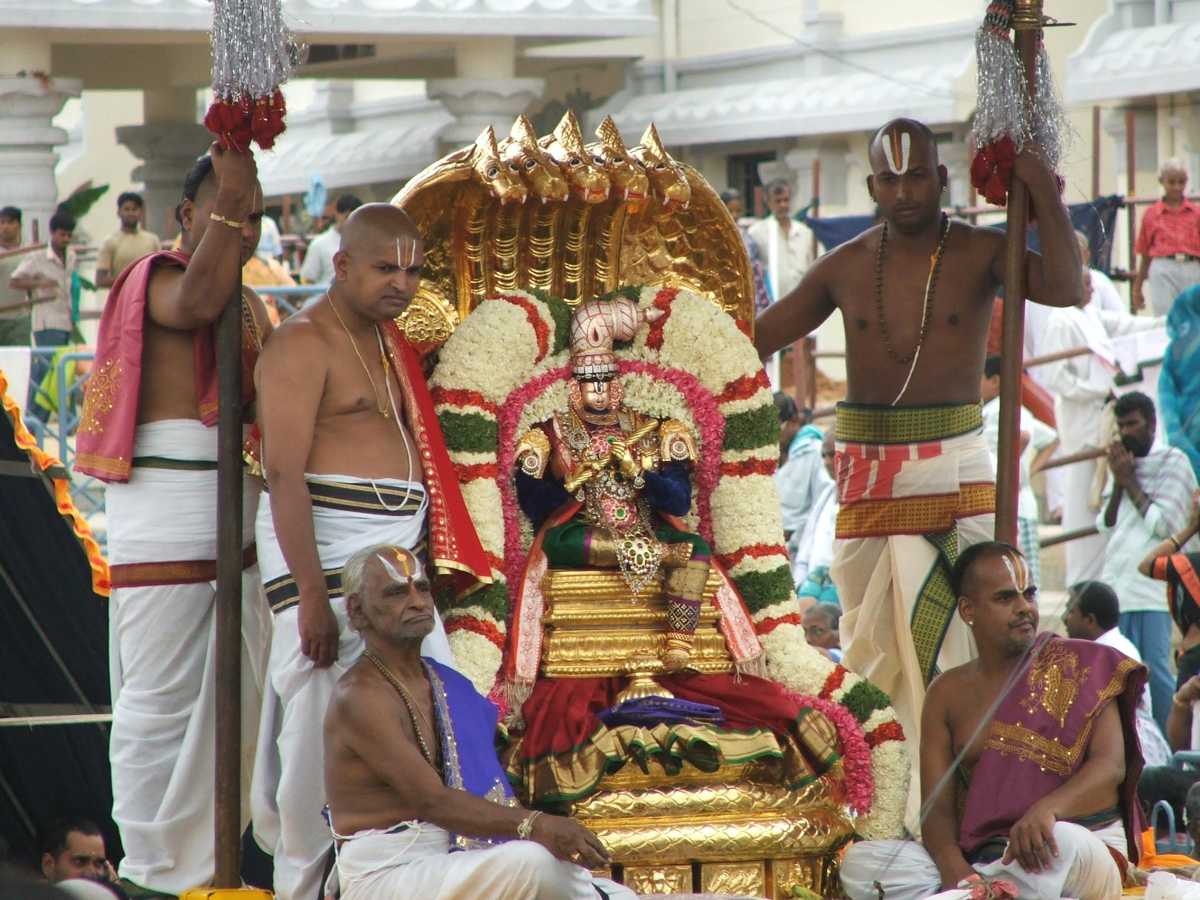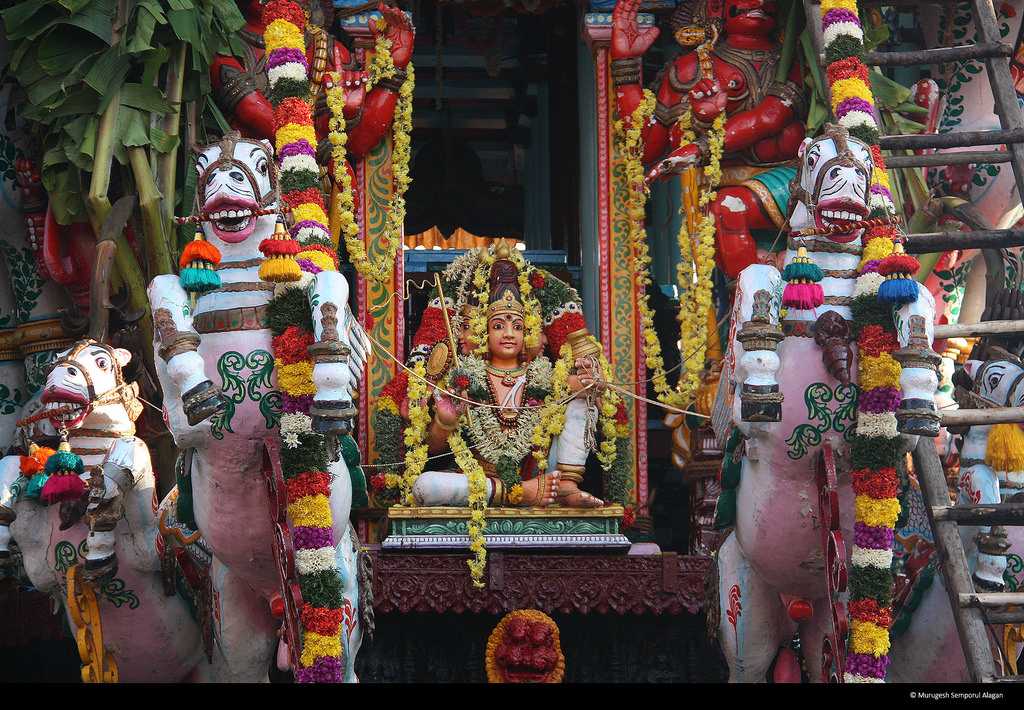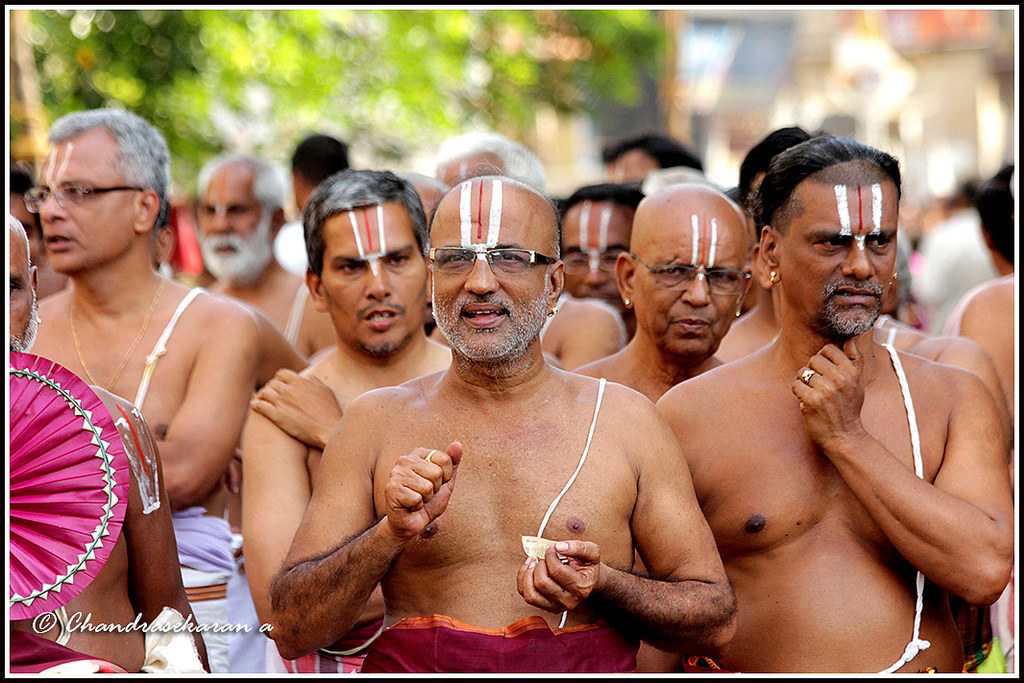Brahmotsavam Festival at Tirupati, Tirupati Overview
Weather : 27° C
Time Required : September
Entry Fee : No entry fee
Timings : 30th September 2019 - 8th October 2019
The Tirumala Venkateswara temple, along with being the richest temple, is also the most visited place of worship in the world. Built in the 8th century, this temple witnesses about 50,000-100,000 pilgrimage visits every day. During the Brahmostav Festival in September, the temple is visited by about a million devotees in the span of a week. The festival takes place over a span of nine days and is also termed as the Brahma's Utsavam or Lord Brahma's festival. In 2019, it will be held from 30th September to 8th October 2019.
Brahmotsavam at Tirupati 2019 Dates
30th September 2019 to 8th October 2019
Venue of Brahmotsavam Festival
Tirupati Venkateshwara Temple, Tirupati
Festivities & Celebrations at the Brahmotsavam Festival

Deity at the Tirupati Temple
The festival is celebrated with great vigour and attracts a large number of devotees every year. On the first day, 'Anurarpana' ritual is performed along with the ceremony of paying respect to Shri Vishvaksena. The Anurarpuna ritual signifies ripeness, richness, success and abundance.
A procession dedicated to Lord Venkateshwara is also seen on Pedda Seshavahana and covers four streets of the temple for over two hours till midnight.
During the nine days of the festival, religious activities like homas and processions (vahanam) of various idols are taken out on chariots, both in the morning and evening at the temple.
The 9 Days Of Brahmotsavam
Dwajarohanam
Dwajarohanam meaning flag hoisting is held on the first day. A flag bearing the image of Garuda (Mount of Vishnu) on the top of Dwajasthabam of the temple is hoisted amidst the chanting of the Vedas. This symbolises the formal invitation which is given to the deities to attend the Brahmotsavam Festival. Before the flag hoisting ceremony, there is a procession of the deities. As a tradition, after the dwajarohanam, the Chief Minister of Andhra Pradesh offers new silk clothes to the Lord.
Pedda Sesha Vahanam
After Dwajarohanam, in the evening, there is a procession of Lord Venkateshwara on Adi Sesha, the thousand-headed chief serpent which is known as Pedda Sesha Vahanam
Chinna Shesha Vahanam

Chinna Vahanam at Tirupati Tirumala
This is held on the second day when the Lord is taken out on Vaasuki (Serpent God). Chinna Sesha Vahanam is five-headed.
Hamsa Vahanam
The Lord is again taken out in a procession in the evening on the second day on Hamsa (swan). Hamsa signifies purity and high intellectual capability.
Simha Vahanam
The Lord is taken out in a procession on a lion on the third day. This is held in the morning and symbolises power. It is believed that Lord Venkateshwara assumed the form of a half lion and half man in his Narasimha Avatara.
Muthyala Pallaki Vahanam
Held in the evening on the third day, the Lord is taken out in a procession with Sri Devi and Bhoo Devi, his consorts. They are taken in a palanquin decorated with an umbrella of pearls.
Kalpa Vruksha Vahanam
The Lord is again taken in a procession on Kalpa Vruksha as his vehicle. This signifies that he is the giver of boons and fulfils all the wishes of his devotees.
Sarva Bhoopala Vahanam
On the fourth day (evening), the Lord goes out in a procession on a vehicle called Sarva Bhoopala. This signifies that he is the Lord of Lords.
Mohini Avatharam

Brahmotsavam Festival
Decorated in the attire of Mohini Avatharam, one who distributed the Divine Nectar, Lord Venkateshwara again goes out in a procession. This procession is held on the fifth day and starts from the temple in data pallaki accompanied by Lord Krishna in the other pallaki (palanquin).
Garuda Vahanam
In the evening on the fifth day, the Lord goes out in a finely decorated procession with his chief devotee and vehicle, Garuda (the King of Birds). Thousands gather to witness this grand spectacle. It is considered extremely auspicious to witness this sight.
Hanumantha Vahanam
Lord Hanuman is Lord Venkateshwara’s vehicle for the procession on the sixth day. Lord Hanuman is believed to be the most trusted devotee of the Lord.
Swarna Rathotsavam
In the evening on the sixth day, Lord Venkateshwara is taken out first for Swarnarathotsavam and then on an elephant as his vehicle.
Surya Prabha Vahanam
On the seventh day, the Lord is taken out on a procession with the Sun God as his chariot. Sun is believed to be the incarnation of Lord Maha Vishnu.
Chandra Prabha Vahanam
In the evening, the Lord again goes out in a procession with Moon as his vehicle.
Both these rituals on the seventh day signify that Lord Venkateshwara is the cause of days and nights.
Rathostavam
On the second last day, the Lord goes out in a procession along with his consorts on a beautiful Chariot pulled by his devotees. There is chanting of Govinda Nama Smarana. There is a belief that those who witness this are liberated from the cycle of birth and death.
Ashwa Vahanam
With Ashwa (horse) as his chariot, the Lord goes out in a procession. This is a symbol of the forthcoming Kali Avatar. Lord Venkateshwara used to ride a horse while hunting wild animals.
Chakra Snanam
On the last day of Brahmotsavam, a special tradition is observed called Avabhrutha Snanam. It is held for Malayappa and his consorts along with Sudarshan Chakra. Later, the Sudarshan Chakra is immersed in Swamy Pushkarini.
Dwajaavarohanam
On a ninth day, the Garuda flag is lowered as a mark of completion of the festival. The priests chant various mantras and rituals are performed in Dwajastamba and mandapa.
Schedule of Brahmotsavam 2019
30th September | Dwajarohana at 5:00 PMPedda Sesha Vahanam at 9:00 PM |
1st October | Chinna Sesha Vahanam at 9:00 AMHamsa Vahanam at 9:00 PM |
2nd October | Simha Vahanam at 9:00 AMMuthyala Pallaki Vahanam at 9:00 PM |
3rd October | Kalpa Vruksha Vahanam at 9:00 AMSarva Bhoopala Vahanam at 9:00 PM |
4th October | Mohini Avatharam at 9:00 AMGaruda Vahanam at 7:30 PM to 12:00 PM |
5th October | Hanumantha Vahanam at 9:00 AMSwarna Rathotsavam at 5:00 PMGaja Vahanam at 9:00 PM |
6th October | Surya Prabha Vahana at 9:00 AMChandra Prabha Vahana at 9:00 PM |
7th October | Rathostavam at 6:00 AMAshwa Vahanam at 9:00 PM |
8th October | Chakra Snanam at 6:00 AMDwajavarohanam in the evening |
Legends & Myth of Brahmotsavam
The festival is a thanksgiving to Lord Brahma. According to legends, it is believed that Lord Brahma first worshipped Lord Balaji at the catchment area of the holy Pushkarini river to thank the Lord for his blessings to humankind. Hence, the festival is named after him as he was the first one to conduct it at the Tirupati Temple.
Relevance Of The Festival

Source








No comments:
Post a Comment